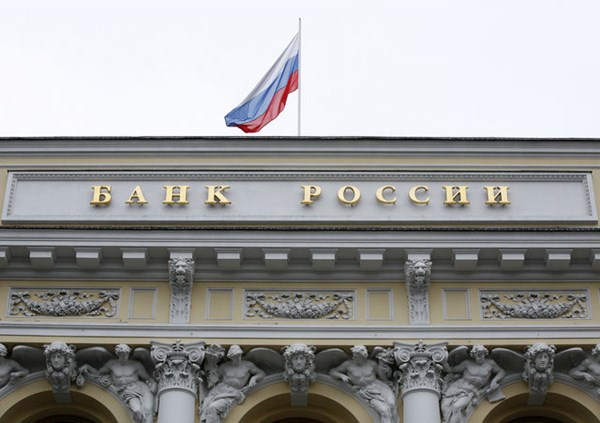Russian Central Bank communication system fails after Kremlin attempts to shut down Google services
The Russian Central Bank experienced a failure of its electronic systems a few days after the Russian media watchdog, Roskomnadzor, stepped up efforts to block VPNs and attempted to limit the work of a number of Google services.
Communication channels through which Russian banks interact with the Central Bank became unstable on Monday, September 13, Interfax reports, with reference to the press service of the Russian Central Bank.
On Tuesday, the problems persisted and created difficulties for ruble loans and deposit transactions.
Due to the "unstable operation of electronic cabinets”, the Central Bank decided to accept paper applications from banks and extended the deadline for their submission until late in the evening - 20.00 Moscow time. It is necessary to send written documents "to the regional offices of the Bank of Russia servicing the correspondent account of the credit institution."
At the same time, the deadlines for providing other electronic documents, including reporting, as well as responses to requests and instructions of the Central Bank, were extended.
"Problems arose because of the ongoing technical work," the Central bank explains, adding that the restoration of the performance of personal accounts is expected at 21.00 GMT on Tuesday.
Last week, Roskomnadzor began to block six VPN services, including the popular Nord VPN, which caused a wave of failures among users. At the same time, IT specialists reported a partial that Google and Cloudflare DNS servers had been partially blocked.
On Tuesday, a source of the RBC news agency in the telecom market confirmed that the state-owned internet provider Rostelecom has imposed restrictions on Google public DNS servers (with IP addresses 8.8.8.8 and 8.8.4.4) and Cloudflare (1.1.1.1 and 1.0.0.1), as well as the DoH protocol.
Google public DNS servers allow speeding up the loading of web pages, protect against spoofing (when one site is disguised as another), and Cloudflare encrypts web traffic so that operators do not see which resource the user is accessing.
“For the past two years Roskomnadzor has been actively engaged in the installation of DPI (Deep packet inspection) technologies and has been testing TSCM (Technical Surveillance Counter Measures) installed under the law on the sovereign Internet,” says Vladislav Zdolnikov, founder of the GlobalCheck project to monitor internet services outage.
Online resources associated with Alexei Navalny, and then the website of "Smart Voting" were the first ones to be blocked by Roskomnadzor as part of the TSCM.
"For the last week, the Roskomnadzor has been blocking the tools that the Navalny mobile application uses or can use to bypass the locks - DoH and DHT. They look at what will happen, what resources and services will suffer, how upset the "peaceful" users of these technologies will be. DoH-services Google and Cloudflare affected ordinary users who encrypt their DNS requests, and the blocking of DHT affected torrents, various blockchains and streaming services like Twitch, " says Zadolnikov.
"The further it goes, the worse it will become. It's like bombing the city,” said the director of the "Society for the Protection of the Internet" Mikhail Klimarev. “There will be many users who will not be able to access websites or applications.”
On Tuesday evening, users reported that the Russian railways website was not opening (only with a VPN) and the Whoosh application for renting scooters was not accessible.
